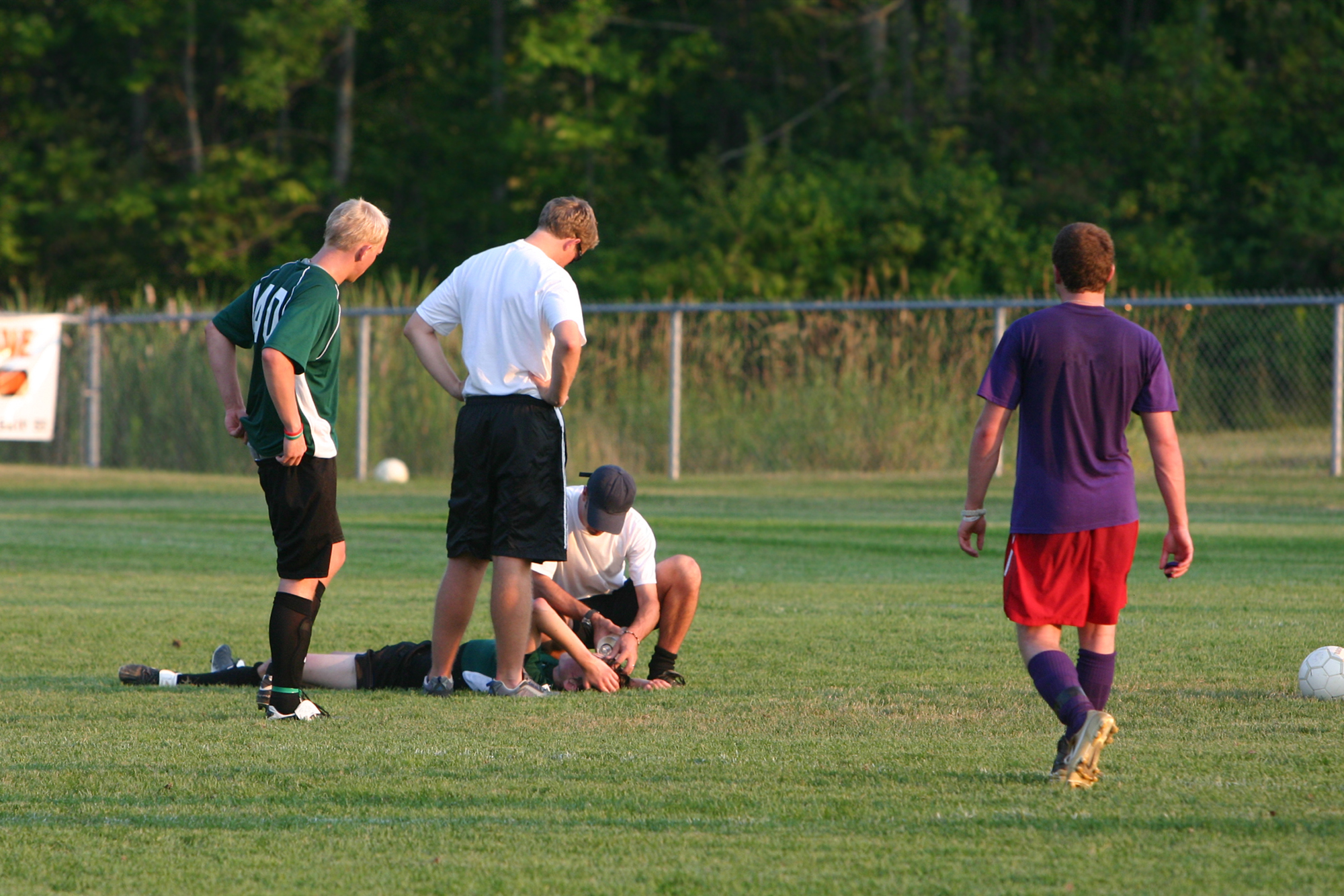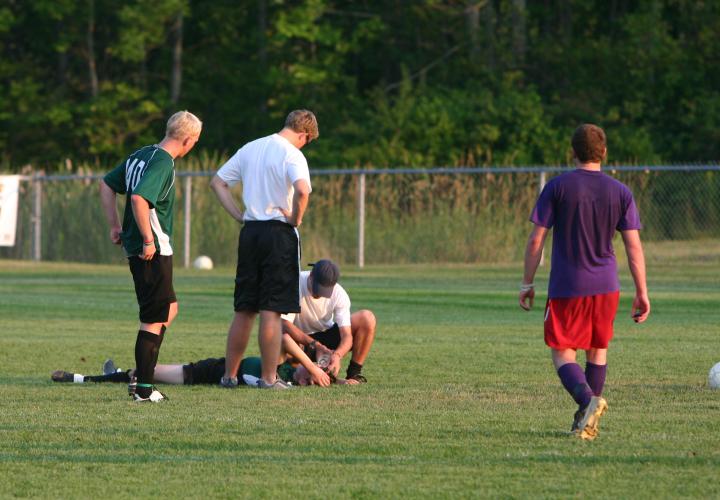If your child, teen or young adult is an athlete, it’s important to talk to them about concussions. Pediatric Sports Medicine expert Imran Hafeez, MD, shares five important things parents and athletes need to know…
Would you like to schedule an appointment with Sports Medicine?
1. Concussions are common in sports.
Falls and collisions during sports can cause concussions, a kind of brain injury that can be mild to more significant.
Football and soccer are known for having a higher risk of concussions, but concussions can happen in all sports.
2. Here are the most common signs of concussion.
If your child thinks they’ve banged their head or are experiencing any of these symptoms, they need to stop playing immediately and tell their coach or another adult.
- Headache
- Light or sound sensitivity
- Blurred or double vision
- Dizziness
- Nausea or vomiting
- Problems with coordination or balance
- Feeling slowed down
- Concentration or memory problems
- Answering questions slowly
- Repeating the same thoughts over and over again
- Appearing dazed or confused
If they have persistent symptoms, call your doctor.
> Schedule a Sports Medicine in-person appointment or Video Visit now
3. If your child might have a concussion, they need to see a doctor right away.
It can mean the difference between a few days of rest and lifelong health issues.
Why? It’s extremely dangerous for a young athlete to continue playing with a concussion, even if it’s mild.
What are the long-term effects of a concussion if not treated?
If they don’t recover properly, they could experience long-term issues with focus, attention and coordination – and in the short-term, be at higher risk for a second, serious injury.
4. When treated correctly, most concussions heal quickly.
With the right diagnosis and treatment, most teens with concussions recover quickly without lasting health problems.
The treatment for a concussion depends on the symptoms. It usually includes several days of activity modification followed by increasing cognitive and physical activity in a structured way, until functioning has returned to normal. This process should be closely supervised by a doctor.
Young athletes shouldn’t return to their sports until their doctor says it’s okay.
> Learn about Connecticut Children’s concussion management program
5. Your child can take important steps to prevent concussions.
- Get enough sleep. Athletes who are overtired are more injury-prone – and that includes head injuries.
- Make sure protective equipment fits properly. When it comes to preventing head injuries, a well-fitted helmet is important.
- Build up conditioning, strength and fitness. In some studies, athletes with stronger necks have been reported to have a decreased risk of concussion.
- Play it safe. Your child’s coach should make sure that players know the latest rules and techniques, like the proper way to tackle, and limit the time they spend practicing or playing in high-contact situations.
Connecticut Children’s Sports Medicine offers concussion care throughout Connecticut, including Fairfield County. Our multidisciplinary team consists of physicians and athletic trainers, nutritionists and physical therapists.
Schedule a visit with Connecticut Children’s Sports Medicine team >>
You might also like:
Sports Medicine at Connecticut Children's

